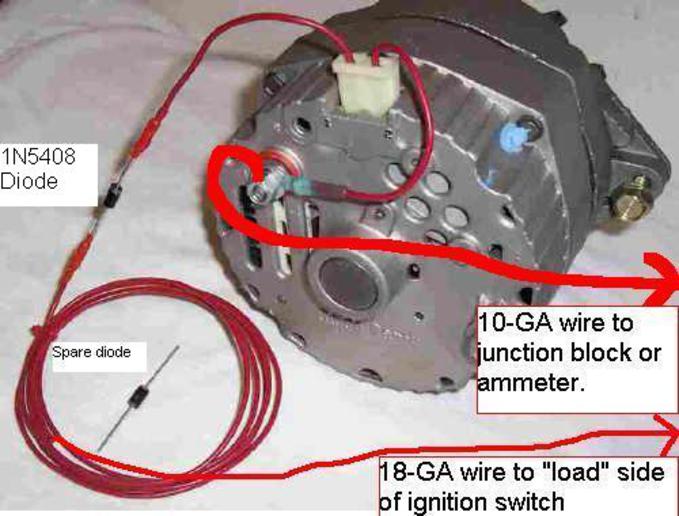Anonymous-0
Well-known Member
I am using a Delco Remy 11SI 110 amp 12 volt one wire Alternator with 3.0 ohm internal resistance and internal cooling fans. I am replacing the ampere meter with a voltage meter which I believe to be more sensitive to charge and discharge movement and also beneficial in assisting diagnosing other electrical circuit problems. I am replacing and rewiring the ignition switch with a key ignition switch and the coil with a 12 volt coil and replacing light bulbs from 6 to 12 volts. My question is, I have been led to believe it is necessary to ground the above identified Alternator with a common ground source as used by the battery negative ground cable. Is this true and, if so, where would you recommend the Alternator be grounded and how would you recommend that wiring be accomplished? I am keeping all the replaced parts as they are in relatively excellent condition and some parts I had already once replaced. Thanks in advance for all anticipated courtesies. Farmall Fran


